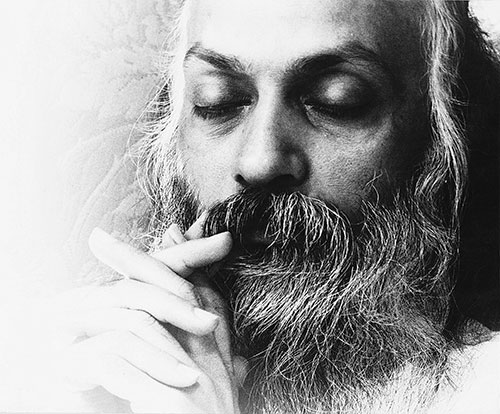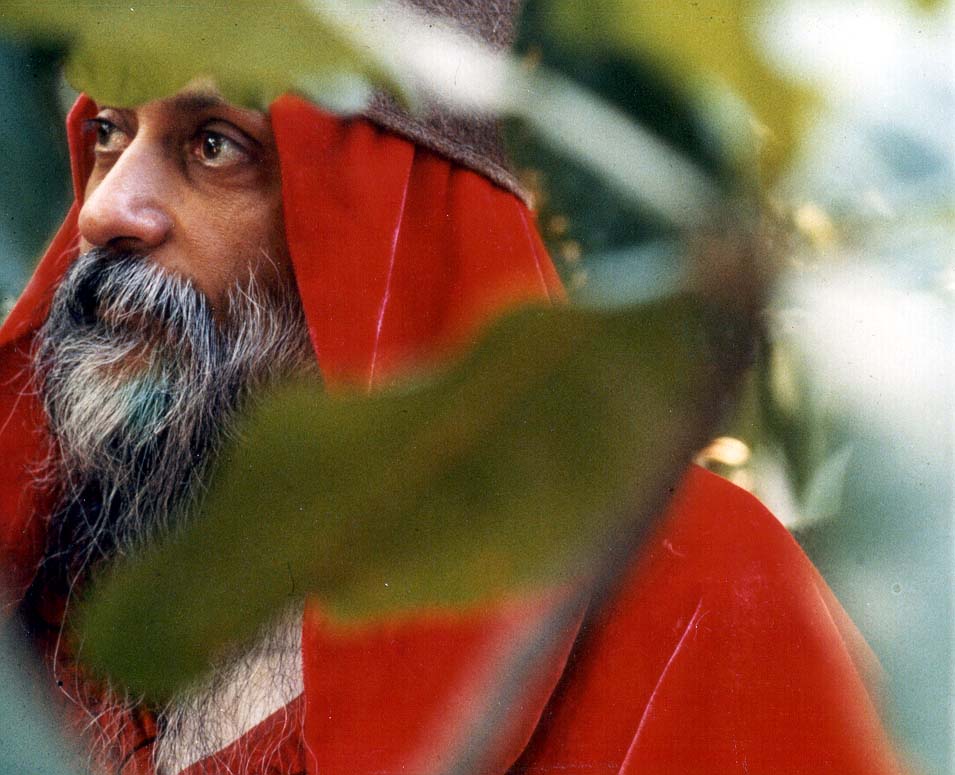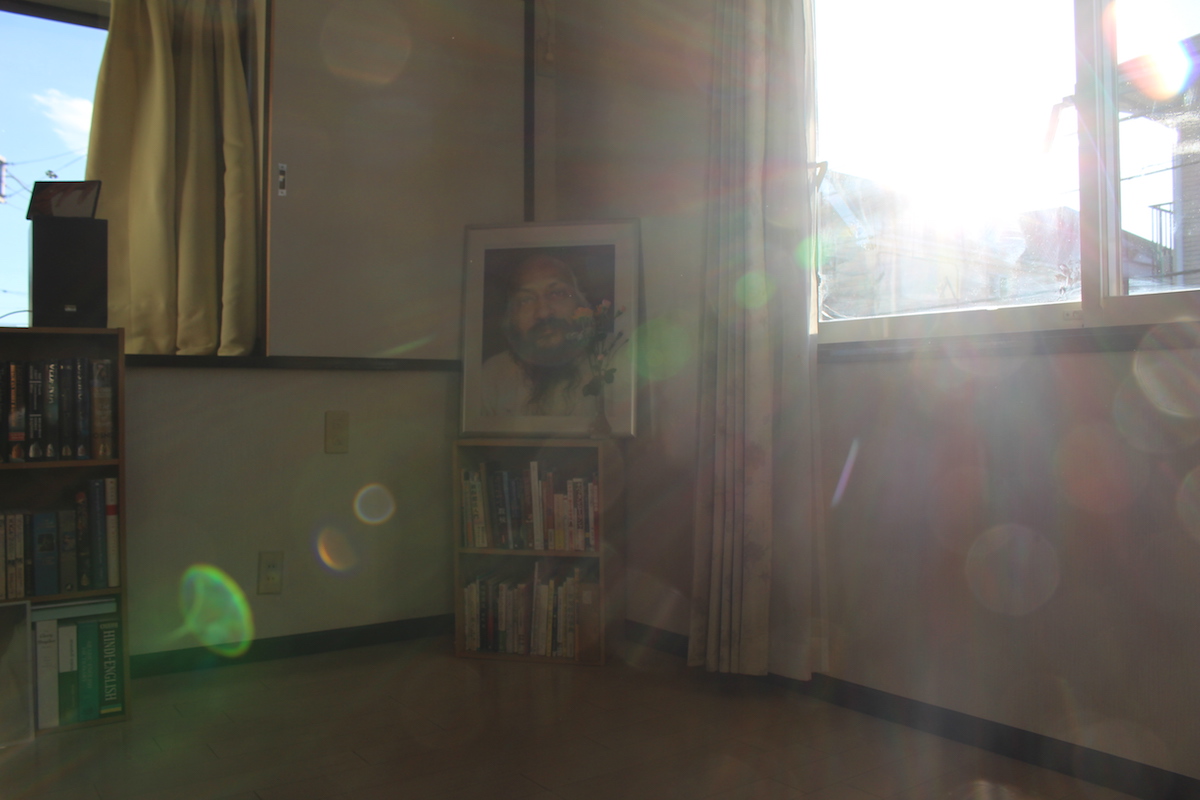
In moments of harmony you forget that you are. Later on, you may remember how beautiful it was, how fantastic it was, how far-out. But in moments of real far-outness, you are not there.
あなたが調和を感じているとき、あなたはあなたが在るということを忘れている。
あとになって貴方はそれが如何に美しかったか、いかに素晴らしかったか、いかに凄かったか思い出すかもしれない。
Something bigger than you has overpowered you;
something higher than you has possessed you;
something deeper than you has bubbled up.
You have disappeared.
あなたよりも大きい何かがあなたを圧倒した。
あなたよりも高次の何かがあなたをとらえた。あなたよりも深遠なものが湧き上がった。
あなたは消え去った。
In deep moments of love, lovers disappear.
In deep moments of silence, meditators disappear.
In deep moments of singing,dancing, celebration, celebrators disappear.
And this is going to be the last celebration, the ultimate,
the highest peak – kaivalya.
愛が深まったとき、愛するものは消え去る。
静けさが深まったとき、瞑想するものは消え去る。
あなたが無我夢中に歌い、踊り、祝っているとき、その人はそこにいない。
そしてこれが最後の、究極の、最高峰の祝祭となる。その状態は「カイバラヤ」と呼ばれる。
Patanjali says, ”Even the desire to be disappears.
Even the desire to remain disappears.”
One is so fulfilled, so tremendously fulfilled that one never thinks in terms of being.
For what? – you want to be there tomorrow also because today is unfulfilled.
パタンジャリは言う。
「存在したいという欲望さえも消える。
留まりたい欲望さえ消え去る。」
その人は満ち足りている、途方もなく満たされているので、
存在したいという点から決して考えない。
何のために?あなたは明日もそこに在りたい。なぜなら今日もまた満ちたりていなかったからだ。
The tomorrow is needed; otherwise you will die unfulfilled.
The yesterday was a deep frustration; today is again a frustration; tomorrow is needed.
A frustrated mind creates future.
A frustrated mind clings with the future.
A frustrated mind wants to be because now, if death comes, no flower has flowered.
Nothing has yet happened; there has only been a fruitless waiting:
明日が必要になる。さもなければあなたは満たされないまま死ぬことになる。
昨日は強い欲求不満だった。今日もまた欲求不満。だから明日が必要になる。
欲求不満のマインドが未来をつくりだす。
欲求不満のマインドが未来にしがみつく。
欲求不満のマインドが存在したいと欲す。
なぜならいま死がやってきたら、一輪の花すら咲いていない。
まだ何も起こっていない。何も実りなく待っていただけになる。
”Now, how can I die? I have not even lived yet.”
That unlived life creates a desire to be.
People are so much afraid of death: these are the people who have not lived.
These are the people who are, in a certain sense, already dead.
A person who has lived and lived totally does not think about death.
If it comes, good; he will welcome.
He will live that too, he will celebrate that too.
Life has been such a blessing, a benediction; one is even ready to accept death.
Life has been such a tremendous experience; one is ready to experience death also.
「いまどうやって死ねようか?まだ生きてすらいないのに」
その生きてこなかった人生が在りたいという欲望をつくりだす。
人々は死を途方もなく恐れている。そのような人々は生きてこなかったものたちだ。
ある意味すでに彼らは死んでいる。
生きてきた人、全面的に生きてきた人は死について考えない。
もしそれがやってきたら、良いことだ。彼は歓迎する。
そして彼は死もまた生きる。彼は死もまた祝福する。
人生が途方も無い恩恵、祝福だった。そのような人生を送った人は死すら受け入れる準備ができている。
人生が途方も無い経験だった。そのような人は死を経験する用意ができている。
One is not afraid because the tomorrow is not needed;
the today has been so fulfilling. One has come to fruition, flowered, bloomed.
Now the desire for tomorrow disappears.
The desire for tomorrow is always out of fear,
and fear is there because love has not happened.
The desire to always remain simply shows that deep down you are feeling yourself completely meaningless.
You are waiting for some meaning.
Once the meaning has happened, you are ready to die – silently, beautifully, gracefully.
”Kaivalya,” Patanjali says, ”happens only when the last desire to be has disappeared.”
The whole problem is to be or not to be.
The whole life we try to be this and that,
and the ultimate can happen only when you are not.
その人は不安ではない。なぜなら明日は必要ないから。
今日がとても満ち溢れている。その人は実を結び、花がつき、開花した。
だからいま明日への欲望が消え去った。
明日への欲望はいつも恐れからやってくる。
恐れはそこにある。なぜなら愛が起こってないからだ。
いつも留まりたいという欲望は単に貴方が深いところで、貴方は自分自身が全くもって意味がないと感じている。
貴方は何かの意味を待っている。
一度貴方の中で何か意味が起こったとき、貴方は死ぬ準備ができている。
静かに、美しく、優雅に。
パンタジャリは言う。
「在りたい」という最後の欲望が消え去ったときにだけ、「カイバラヤ」は起こる。
人生において私たちはこれやあれになろうとしている。
しかし究極なるものは、貴方が消え去った時にだけ起こる。
Yoga: The Alpha and the Omega Vol 10 CHAPTER 9. KAIVALYA


